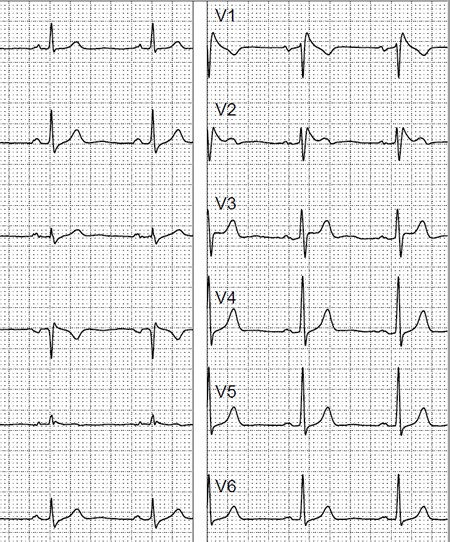Definition
Brugada Syndrome is characterized by a typical ECG pattern of coved-type ST segment elevation with successive negative T wave in the right precordial leads (V1 to V3), high prevalence of conduction delays at different levels, and susceptibility to polymorphic ventricular tachyarrhythmias and sudden death. The typical Brugada ECG shown above, can be an intermitent or a permanent ECG finding. The prevalence of BrS is estimated in 1:5000 individuals. BrS frequently manifests during the third or fourth decade of life with ventricular arrhythmias or Sudden Cardiac Death(SCD) typically occurring during sleep. The prevalence of BrS is markedly higher in males (male-to-female, 8:1), who have 3.3-times higher risk for cardiac events (syncope, SCD, ICD shock) than females.
Why to perform genetic testing in cases with suspected BrS?
- To better perform risk stratification and prognosis
- To identify other relatives at risk to develop the disease
- To provide life style recommendations in asymptomatic relatives carriers of clear BrS mutation (rapid fever control, reduced alcohol consumtion and drugs to avoid known as triggers of ventricular arrhythmias)
- Click here to see the drugs to be avoided in BrS

Our Basic Brugada Syndrome panel
SCN5A
Our Expanded Brugada Syndrome panel
CACNA1C, CACNB2, GPD1L, HCN4, KCND3, PKP2, RANGRF, SCN10A, SCN1B, SCN2B, SCN3B, SCN5A, TRPM4.
Important: All our panels can be modified based on the phenotype. Please contact us if you have questions
What to expect from this test: Brugada Syndrom genetic test has a yield of 30%.
Recommended Literature
- Brugada syndrome: clinical presentation and genotype-correlation with magnetic resonance imaging parameters. Rudic et al. Europace. 2016 Sep;18(9):1411-9. doi: 10.1093/europace/euv300. Epub 2015 Oct 28.
- Gender differences in patients with Brugada syndromeand arrhythmic events: Data from a survey on arrhythmic events in 678 patients. Milman A. et al. Heart Rhythm. 2018 Oct;15(10):1457-1465. doi: 10.1016/j.hrthm.2018.06.019
- Emerging Implications of Genetic Testing in Inherited Primary Arrhythmia Syndromes. Asatryan B. et al. Cardiol Rev.2019 Jan/Feb;27(1):23-33. doi: 10.1097/CRD.0000000000000203.
Download here interesting open access manuscripts on genetics of BrS


